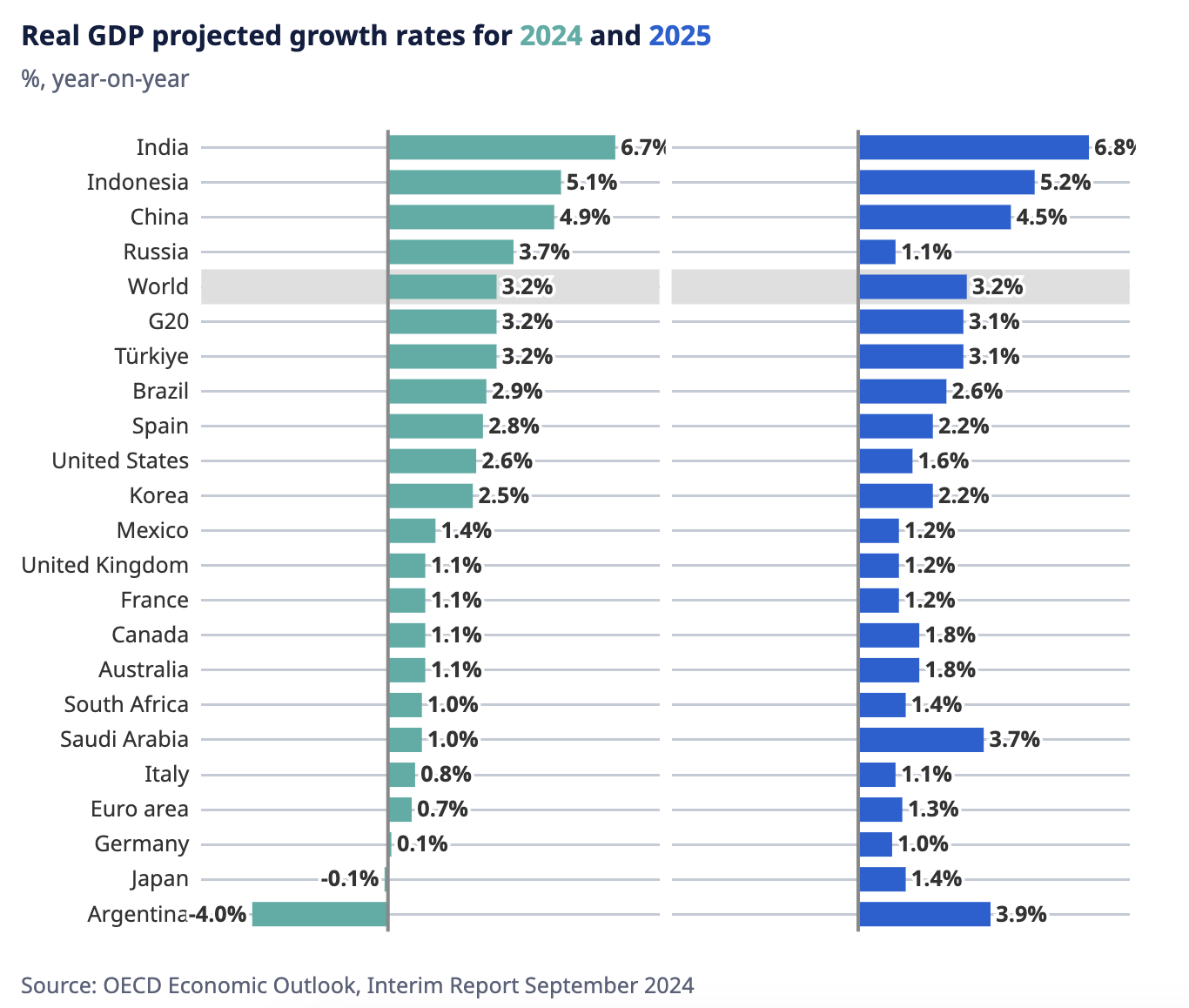
Worldwide growth also expected to 'remain resilient' in 2024, 2025

Global growth is expected to hit 3.2% in 2024 and 2025 following a resilient first half of the year, according to the latest estimates from the Organisation for Economic Co-operation and Development (OECD).
The OECD's Interim Economic Outlook said the global economy is showing signs of recovery as inflation declines and trade growth strengthens.
"The global economy is starting to turn the corner, with declining inflation and robust trade growth," said OECD Secretary-General Mathias Cormann in a statement. "At 3.2%, we expect global growth to remain resilient both in 2024 and 2025."
Inflation across G20 economies is projected to ease from 6.1% in 2023 to 5.4% in 2024 and further down to 3.3% in 2025, according to the OECD. For advanced G20 economies, core inflation is expected to decrease to 2.7% in 2024 and 2.1% in 2025.
The United States, one of the world's largest economies, is forecast to see its GDP growth to reach 2.6% in 2024 before dropping to 1.6% in 2025. Meanwhile, the euro area is projected to experience a more modest 0.7% growth in 2024, rising to 1.3% in 2025.
China, the world's second-largest economy, faces an economic slowdown, with the OECD predicting growth of 4.9% in 2024 and 4.5% in 2025. The report attributes this slowdown to a mix of subdued consumer demand and challenges in the real estate sector, despite ongoing policy stimulus.

"The pace of regulatory reforms in recent years has been stalling, and in important parts of the economy reform progress came to a standstill," said OECD Chief Economist Álvaro Santos Pereira in a statement.
"Amid sluggish productivity growth and tight fiscal space, product market reforms that promote open markets with healthy competitive dynamics remain a key lever to reinvigorate growth."
Meanwhile, the OECD warns that the impact of tight monetary policy on demand could be more significant than anticipated, while unexpected deviations from the current path of disinflation could lead to disruptions in financial markets.
Geopolitical tensions, including Russia's ongoing war in Ukraine and conflicts in the Middle East, also pose further risks by potentially driving up inflation and dampening global activity.
On the other hand, the OECD suggests that stronger real wage growth could boost consumer confidence and spending, while weaker global oil prices may accelerate the decline in inflation.
However, the organisation advises caution, urging central banks to carefully monitor data before making further monetary policy adjustments to ensure inflationary pressures are fully contained.
"Declining inflation provides room for an easing of interest rates, though monetary policy should remain prudent until inflation has returned to central bank targets," Cormann said.
He also called for governments to take "decisive policy action" to rebuild fiscal space by improving the efficiency of public spending, reallocating funds to areas that support growth, and optimising tax revenues.